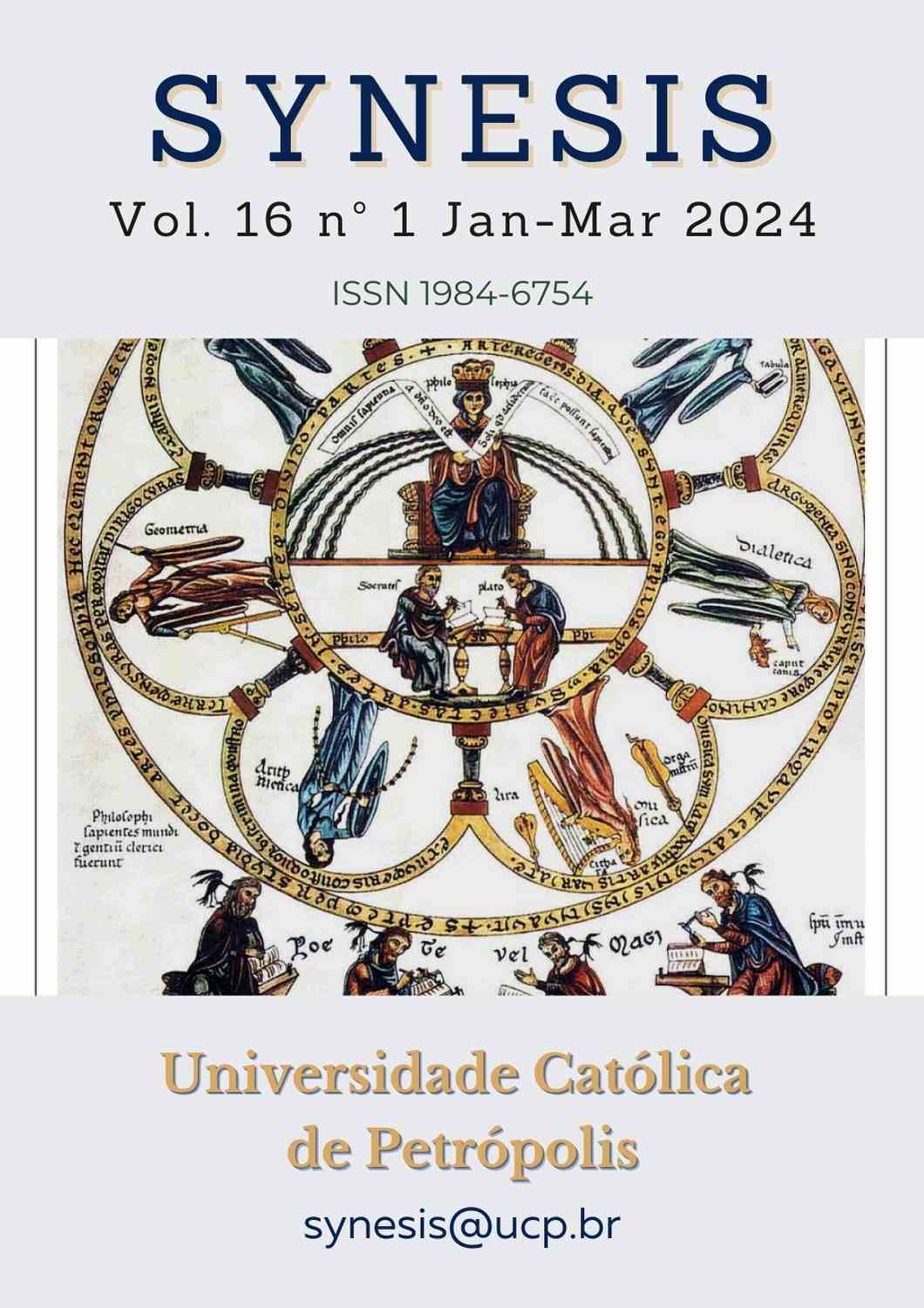Abstract
The influence of labor alienation on sustainable development in Vietnam from the philosophical perspective of Karl Marx is researched by focusing on analyzing the impact of the phenomenon of labor alienation on sustainable development in Vietnam. Vietnam, from the philosophical perspective of Karl Marx. Labor alienation comes from workers only performing monotonous and repetitive work in a production environment, losing control and creativity. According to Marx, this phenomenon causes many negative problems for workers such as: loss of skill diversity; lack of creativity and contribution; poor labor performance; the possibility of social unrest; affects health and psychology. To research this topic, the author has focused on clarifying the views of Marx's labor theory of value, profit rate, surplus value, worker's labor, alienation. From clarifying the above issues, the author will focus on drawing out the alienation in Vietnam's labor force to shed light on issues such as: labor alienation and Sustainable Development in Vietnam; The labor situation and the effects of alienation on workers in Vietnam also provide discussions on this topic.
References
Atzeni, M. (2022). A Marxist perspective on workers’ collective action. In Marxism, Social Movements and Collective Action (pp. 137-162). Cham: Springer International Publishing. https://doi.org/10.1007/978-3-031-12474-7_7
Bousquet, C. (2023). Work and social alienation. Philosophical Studies, 180(1), 133-158. https://doi.org/10.1007/s11098-022-01880-9
Chen, L. (2022). The Theoretical Charm of Marxism. In CHINA’S PHILOSOPHICAL STUDIES: Rediscovery of Chinese Spiritual Essence (pp. 65-83). https://doi.org/10.1142/9789811246555_0004
Cole, M. (2022). Social class, neoliberal capitalism and the Marxist alternative. In Education, Equality and Human Rights (pp. 257-284). Routledge.
Cousins, B. (2022). Social differentiation of the peasantry (Marxist). The Journal of Peasant Studies, 49(7), 1387-1398. https://doi.org/10.1080/03066150.2022.2125805
Desan, M. H. (2022). Does Bourdieu “Extend” Marx’s Concept of Capital? In Bourdieu and Marx: Practices of Critique (pp. 199-215). Cham: Springer International Publishing. https://doi.org/10.1007/978-3-031-06289-6_9
Economakis, G., & Markaki, M. (2023). Unequal exchange in the EU: The case of trade transactions between Germany, Italy, and Greece. Science & Society, 87(1), 21-49. https://doi.org/10.1521/siso.2023.87.1.21
Fei, W. (2023). The influence of Karl Marx’s notion of justice on Martha Nussbaum’s capabilities approach. Educational Philosophy and Theory, 55(8), 973-982. https://doi.org/10.1080/00131857.2022.2138746
Ferrer-Hernández, J. (2023). On the limits of planning in labor time from the standpoint of the theory of value. Review of Evolutionary Political Economy, 1-21. https://doi.org/10.1007/s43253-023-00108-8
Flohr, M. (2023). Karl Marx’s critique of the state as an alienation of society in his 1843 Critique of Hegel’s Doctrine of State. Distinktion: Journal of Social Theory, 1-25. https://doi.org/10.1080/1600910X.2023.2173268
Foster, J. B. (1995). Marx and the Environment. Monthly review, 47(3), 108-124.
Gül, H. İbrahim. (2022). The Relationship of Labor, Capital, Balance and Benefit with The Evolution of The Labor Factor in Economic Thought, and Society’s Conceptualization of Labor. Journal of Economics and Business Issues, 2(1). Retrieved from https://jebi-academic.org/index.php/jebi/article/view/19
Guy-Evans, O. (2022). Marx's theory of alienation. Simply sociology.
Huber, M. T. (2017). Value, nature, and labor: A defense of Marx. Capitalism Nature Socialism, 28(1), 39-52. https://doi.org/10.1080/10455752.2016.1271817
Inoua, S., & Smith, V. (2023). Adam Smith's Theory of Value: A Reappraisal of Classical Price Discovery. arXiv preprint arXiv:2307.00412. https://doi.org/10.48550/arXiv.2307.00412
Konstantinidis, C., & Vlachou, A. (2023). Karl Marx: A Critical View on Economic Policy. In Economic Policy and the History of Economic Thought (pp. 89-108). Routledge.
Kordela, A. K. (2023). Marx's Affect (and Its Exploitation). Cultural Critique, 120(1), 43-60. https://doi.org/ 10.1353/cul.2023.0024
Marx, K., & Engels, F. (1970). The German Ideology, ed. CJ Arthur. New York: International.
Michaelides, P. G., & Papadakis, T. E. (2023). David Ricardo (1772–1823). In History of Economic Ideas: From Adam Smith to Paul Krugman (pp. 17-27). Cham: Springer International Publishing. https://doi.org/10.1007/978-3-031-19697-3_2
Naldi, N. (1989). Petty's Labour Theory of Prices. Quaderni di storia dell'economia politica, 7(1), 3-36.
Najafi, Z. (2022). Dialectical relation of temporal domination and class exploitation in Marx’s value theory. Capital & Class, 03098168221114376.
Øversveen, E. (2022). Capitalism and alienation: Towards a Marxist theory of alienation for the 21st century. European Journal of Social Theory, 25(3), 440-457. https://doi.org/10.1177/13684310211021579
Peters, M. A. (2022). Poststructuralism and the Post-Marxist Critique of Knowledge Capitalism: A Personal Account. Review of Contemporary Philosophy, (21), 21-37.
Read, J. (2022). The potentia of living labor: Negri and the practice of philosophy. In The Production of Subjectivity: Marx and Philosophy (pp. 205-229). Brill. https://doi.org/10.1163/9789004515277_012
Roche, J. (2022). Sève and Alienation–A Biographical Preface. Historical Materialism, 31(1), 231-244.
Saad-Filho, A. (2022). Value, Capital and Exploitation in Marx. In Marx Matters (pp. 67-84). Brill. https://doi.org/10.1163/9789004504790_005
Sasan, J. M., Barquin, A. M. E., Alestre, N. A., Librea, A., & Zamora, R. M. (2022). Karl Marx on technology and alienation. Science and Education, 3(9), 228-233.
Satgar, V. (2022). Marx, the commons and democratic eco-socialism. In Marx Matters (pp. 181-197). Brill. https://doi.org/10.1163/9789004504790_010
Teixeira, A. L. A., & de Souza Sabadini, M. (2022). Marx and the category of fictitious profits: some notes on the Brazilian economy. Wealth and Poverty in Contemporary Brazilian Capitalism, 105-142. https://doi.org/10.1007/978-3-030-82298-9_5
Varman, R., & Vijay, D. (2022). Capitalist Deathworlds, Alternative Worldmaking. Organizing Resistance and Imagining Alternatives in India, 1.
Xiaoping, W. (2022). Marx Marx ian and Non-Marxian Theories: What Is the Demarcation? In Karl Marx on Socialist Theory and Practice: Rethinking Marx’s Theory of Human Emancipation (pp. 159-201). Cham: Springer International Publishing. https://doi.org/10.1007/978-3-031-09210-7_5
Yazdanipoor, F., Faramarzi, H., & Bicharanlou, A. (2022). Digital Labour and The Generation of Surplus Value on Instagram. tripleC: Communication, Capitalism & Critique. Open Access Journal for a Global Sustainable Information Society, 20(2), 179-194. https://doi.org/10.31269/triplec.v20i2.1304
Ying, D., & Wu, W. (2023). Adjustment of Rural Development Concept in China. In A Study of China's Urban-Rural Integration Development (pp. 141-162). Singapore: Springer Nature Singapore. https://doi.org/10.1007/978-981-19-2756-0_6
Zarębski, T. (2022). The Problem of Totalitarization of the Capitalist Society. In New Developments in the Theory of the Historical Process (pp. 189-216). Brill. https://doi.org/10.1163/9789004507289_011
Zhang, F., & Xiao, Q. (2023). Marxist view on global political economy and new market trends. Trans/Form/Ação, 46, 79-106. https://doi.org/10.1590/0101-3173.2023.v46esp.p79
Zhang, Z. (2023). Exploration and Development of Natural Resource Economics. In Handbook of Chinese Economics (pp. 523-547). Singapore: Springer Nature Singapore. https://doi.org/10.1007/978-981-99-0420-4_16

This work is licensed under a Creative Commons Attribution-NonCommercial-NoDerivatives 4.0 International License.
Copyright (c) 2023 Synesis (ISSN 1984-6754)

